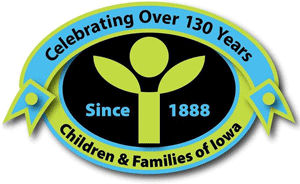Parent Partners
- Need: To support parents whose children have been removed from the home so that the parents can make the changes needed for the children to return safely home.
- Intervention: A statewide program in Iowa pairs these parents with mentors who have successfully navigated their own child welfare cases.
- Results: Participants' children were more likely to return home than non-participants' children, and participants were less likely to have another child removal within a year of the child coming home.
Evidence-level
Effective (About evidence-level criteria)Description
Parent Partners is a statewide program in Iowa that connects parents whose children have been removed from the home with mentors who have successfully navigated their own Iowa Department of Health and Human Services (HHS) cases. The program is voluntary. If parents decline Parent Partners support, they will receive traditional child welfare services.

The program began in 2007 with three pilot sites, expanded to 68 counties in 2012, and became available statewide in 2015. The nonprofit organization Children & Families of Iowa (CFI) managed the statewide rollout.
The Rural Monitor article Parent Partners Provide Mentoring and Support in Rural Iowa offers more information about the program's history and mentors' experiences.
Services offered
The mentors:
- Coach the parents through different challenges
- Teach parents to advocate for themselves
- Visit the parents an average of four times each month at the beginning of the case
- Connect via phone call between visits
- Help parents access community resources, including substance use treatment
- Provide community outreach and education
The mentors also meet with a master's-level clinician once a month to help with their own mental wellness and to prevent burnout. These meetings happen in a group setting, but mentors can also meet with the clinician individually. The program also has support processes in place if mentors in recovery from substance use relapse.
In addition, the program offers employment opportunities, as some mentors are promoted within the organization. And some participants, after closing out their HHS case, can apply to become mentors themselves.
Results
In the 2024 fiscal year, CFI reported 2,109 referrals and supported 1,229 parents with 174 parent partners.
Parent Partners hired a coordinator who is bilingual. The program continues work to recruit a variety of team members who reflect the child welfare population.
A 2019 annual report showed that CFI received 1,554 referrals that year and provided mentoring support to 1,963 parents. There are 155 parents who are mentoring or training to become mentors, 105 of whom are fully trained.
A 2019 Children and Youth Services Review article, studying the program's outcomes between 2011 and 2014, found that participants' children were more likely to return home than non-participants' children (62.4% of the time compared to 55.8%). In addition, participants were less likely to have another child removal within a year of the child returning home (removed from the home 13.4% of the time compared to 21.8% of the time).
Parent Partners received a promising rating from the California Evidence-Based Clearinghouse for Child Welfare. A July 2020 U.S. Department of Health and Human Services brief titled "Strategies for Rural Communities for Addressing Substance Misuse among Families Involved with the Child Welfare System" highlights Parent Partners and eight other programs addressing substance use among families involved with child welfare.
From October 2018 to June 2019, Parent Partners ran a pilot program to provide six months of support after a parent's child welfare case closes. Ten of the 14 individuals enrolled reported a positive experience, either still engaging with the additional support or successfully closing out this support.
During this same period, the program enrolled 31 individuals in a pilot program offering prevention services (preventing cases where children are removed from the home). During this pilot, there were only three referrals that led to a child being removed from the home.
For more information about this program:
Chambers, J.M., Lint, S., Thompson, M.G., Carlson, M.W., & Graef, M.I. (2019). Outcomes of the Iowa Parent Partner Program Evaluation: Stability of Reunification and Re-entry into Foster Care. Children and Youth Services Review, 104. Article Abstract
Challenges
Challenges in the rural locations include a lack of available resources like substance use treatment facilities. Program coordinators connect with any local agencies and organizations that are available to work around these challenges. In addition, the program has funds available for participants with urgent needs like vehicle repairs.
Replication
Gain buy-in before implementing a similar program. Stigma can be an issue: Community members may be judgmental toward these parents, but community outreach efforts can help them see how substance use changes someone's brain and that people can change with support.
In addition, make sure parents have a seat at the table while you're designing and implementing the program. The people who will be directly affected by the program should have a voice and be heard.
Host meetings for community members to attend so that people, especially families, can discuss the gaps in services in the area.
Contact Information
Sara Persons, Statewide Parent Partner DirectorChildren & Families of Iowa
sarap@cfiowa.org
Topics
Child welfare
· Children and youth
· Families
· Human services
· Stigma
· Substance use and misuse
States served
Iowa
Date added
March 30, 2022
Suggested citation: Rural Health Information Hub, 2025 . Parent Partners [online]. Rural Health Information Hub. Available at: https://www.ruralhealthinfo.org/project-examples/1098 [Accessed 27 December 2025]
Please contact the models and innovations contact directly for the most complete and current information about this program. Summaries of models and innovations are provided by RHIhub for your convenience. The programs described are not endorsed by RHIhub or by the Federal Office of Rural Health Policy. Each rural community should consider whether a particular project or approach is a good match for their community’s needs and capacity. While it is sometimes possible to adapt program components to match your resources, keep in mind that changes to the program design may impact results.
